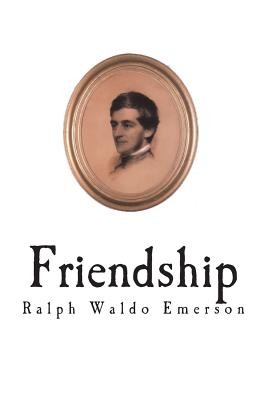
- We will send in 10–14 business days.
- Author: Ralph Waldo Emerson
- Publisher: CreateSpace Independent Publishing Platform
- ISBN-10: 1722731346
- ISBN-13: 9781722731342
- Format: 15.2 x 22.9 x 0.2 cm, minkšti viršeliai
- Language: English
- SAVE -10% with code: EXTRA
Reviews
Description
Friendship: An essay by Ralph Waldo Emerson. Ralph Waldo Emerson (May 25, 1803 - April 27, 1882) was an American essayist, lecturer, philosopher, and poet who led the transcendentalist movement of the mid-19th century. He was seen as a champion of individualism and a prescient critic of the countervailing pressures of society, and he disseminated his thoughts through dozens of published essays and more than 1,500 public lectures across the United States. Emerson gradually moved away from the religious and social beliefs of his contemporaries, formulating and expressing the philosophy of transcendentalism in his 1836 essay "Nature". Following this work, he gave a speech entitled "The American Scholar" in 1837, which Oliver Wendell Holmes Sr. considered to be America's "intellectual Declaration of Independence."
- Author: Ralph Waldo Emerson
- Publisher: CreateSpace Independent Publishing Platform
- ISBN-10: 1722731346
- ISBN-13: 9781722731342
- Format: 15.2 x 22.9 x 0.2 cm, minkšti viršeliai
- Language: English English
Friendship: An essay by Ralph Waldo Emerson. Ralph Waldo Emerson (May 25, 1803 - April 27, 1882) was an American essayist, lecturer, philosopher, and poet who led the transcendentalist movement of the mid-19th century. He was seen as a champion of individualism and a prescient critic of the countervailing pressures of society, and he disseminated his thoughts through dozens of published essays and more than 1,500 public lectures across the United States. Emerson gradually moved away from the religious and social beliefs of his contemporaries, formulating and expressing the philosophy of transcendentalism in his 1836 essay "Nature". Following this work, he gave a speech entitled "The American Scholar" in 1837, which Oliver Wendell Holmes Sr. considered to be America's "intellectual Declaration of Independence."


Reviews